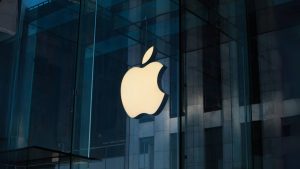In a recent development, tech giant Apple has filed a lawsuit in a Virginia federal court against the U.S. Patent and Trademark Office (USPTO), contesting its decision to deny trademark protection for the company's augmented reality tools.
The lawsuit revolves around Apple's contention that its augmented reality software development tools, namely "Reality Composer" and "Reality Converter," should be eligible for federal trademark protection. However, the USPTO has rejected Apple's trademark applications, arguing that the phrases lack distinctiveness to warrant such protection.
Apple's argument hinges on the uniqueness and creativity of the names "Reality Composer" and "Reality Converter." The company asserts that "Reality Composer" is an inventive term, as the term "composer" is typically associated with music rather than technology. Similarly, Apple contends that "Reality Converter" requires a brief moment of thought to understand its relevance to the product, emphasizing its exclusive use of these phrases for over four years since their respective announcements in 2019 and 2020.
The lawsuit also addresses objections raised by Turkish company ZeroDensity, which challenged Apple's trademark applications, arguing that the phrases merely describe the functionality of the software and could lead to confusion with its own products bearing the term "Reality" in their names. Apple refutes these claims, labeling ZeroDensity's objections as "baseless" and asserting that there is no likelihood of confusion between the products.
Interestingly, Apple highlights the USPTO's approval of ZeroDensity's trademark for "RealityHub" without requiring additional clarification, contrasting it with the rejection of Apple's trademark applications. This discrepancy forms a key aspect of Apple's argument in the lawsuit, underscoring its assertion of unfair treatment by the USPTO.
Notably, the USPTO has refrained from commenting on the lawsuit, leaving the matter to be resolved within the judicial process. The lawsuit signifies Apple's determination to protect its intellectual property rights and assert its position in the burgeoning field of augmented reality technology. As the company continues to innovate and expand its offerings in this domain, the outcome of this legal battle will likely have implications for the broader landscape of trademark protection within the tech industry.
Apple's legal challenge against the USPTO underscores the importance of trademark protection in safeguarding innovation and brand identity in an increasingly competitive market. The outcome of this dispute will undoubtedly be closely monitored by industry observers and stakeholders alike.






















